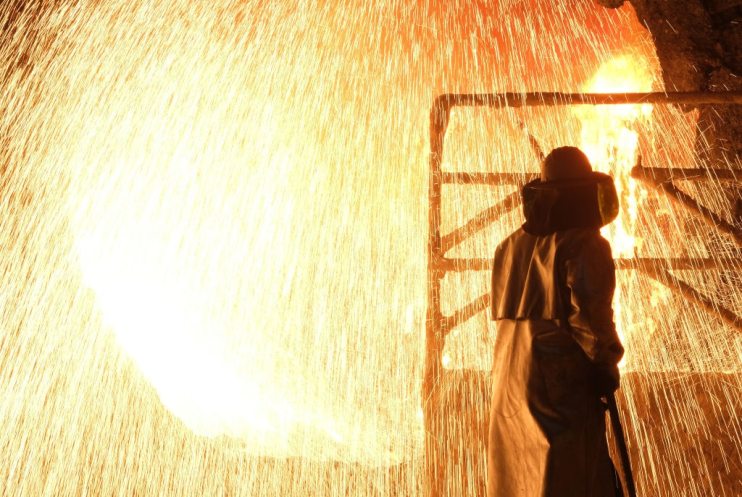Government doubles support for high energy businesses as energy crisis deepens

The government is boosting support for high energy usage businesses, such as steel and paper manufacturers, amid spiralling electricity costs.
It is extending the Energy Intensive Industries Compensation Scheme for a further three years, while doubling its budget, in an estimated £800m package.
The scheme was meant to expire at the end of March, was rolled out to provide relief for businesses suffering elevated costs from the UK Emissions Trading Scheme (ETS) and Carbon Price Support mechanism, recognising domestic industrial electricity prices are higher than those of other countries following the UK’s departure from the European Union.
Downing Street believes that continuing the scheme will help ensure the UK remains an attractive investment destination for energy intensive industries, whilst encouraging greater electrification to cut emissions in line with net zero targets and renewable investment plans.

Business Secretary Kwasi Kwarteng, business secretary, has faced persistent pressure to ease conditions for business with energy prices at record levels.
For instance, CF Fertilisers suspended carbon dioxide production at it plant in Billingham last autumn, unable to handle soaring energy prices, forcing the government to cut a deal to maintain supplies over winter.
The latest measures add to more than £2bn which the government has provided since 2013 to support businesses in energy intensive sectors with the price of electricity bills.
Industry Minister Lee Rowley said: “We want to keep the UK at the forefront of manufacturing, helping our energy intensive industries remain competitive and sustainable for the long term, and continuing to power our economy with thousands of jobs across the country.”
UK Steel’s director general Gareth Stace said: “The three-year extension of the EII compensation scheme and the increase in the level of relief provided by it delivers on a long-standing industry ask and gives the UK steel sector a much-needed reduction in electricity costs. This increase in compensation is a key priority for the steel sector and is a much-needed step to tackling the industrial electricity prices that hold the UK steel sector back from competing with our European counterparts.”
However Chantel Scheepers, chief executive of energy specialist OakTree Power, argued the handout was not a sustainable resolution to the current crisis, failed to address consumption issues.
She said: “The scheme isn’t attached to carbon emission and energy reduction commitments, which means that it’s simply putting the fire out for a short while and kicking the emissions bucket down the road once again. It’s not viable to rely on government handouts to manage businesses’ energy costs, so now is the time for industries to make an effort in not only reducing their energy wastage, but reduce baseline energy consumption.”
The government recently pledged to significantly boost domestic energy production – ramping up renewables, North Sea oil and gas exploration, and nuclear power over the coming decades.
However, it did not provide any details on reducing demand, despite increasing focus on energy efficiency within households and businesses.
Outlining the importance of reducing energy usage, Scheepers added: “The best kilowatt is not the one the government helps you pay for, but the one that you don’t use or learn to use at a time that’s cheaper. That is why the growth of demand side response programmes is more vital than ever, not only to help keep businesses’ costs down but to help the UK break out of its dependence on Russian gas.”